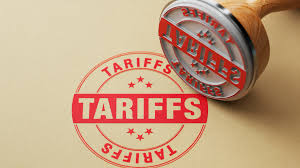A record-breaking $3.3 trillion is projected to flow into global energy investments in 2025, driven by a robust surge in clean energy technologies despite ongoing economic uncertainty and geopolitical tensions, according to the International Energy Agency’s (IEA) annual World Energy Investment report released Thursday.
Clean energy, encompassing renewables, nuclear power, and energy storage, is expected to capture $2.2 trillion, double the investment anticipated for fossil fuels.
Solar power leads the charge with a forecast of $450 billion. In comparison, battery storage investments are set to soar to $66 billion, addressing the intermittency challenges of renewable sources by storing excess power for peak demand periods. “The rapid growth in clean energy investment reflects a global commitment to sustainable systems, even as economic and geopolitical headwinds persist,” said IEA Executive Director Fatih Birol.
However, the report highlights a cautious approach among some investors, with a “wait-and-see” stance on new project approvals due to shifting economic and trade dynamics. Birol noted that existing projects remain largely unaffected, signaling resilience in the sector.
Meanwhile, fossil fuel investments are declining, with upstream oil investment expected to drop by 6% in 2025—the first decline since the 2020 COVID crisis—driven by lower oil prices and subdued demand expectations.
A critical concern raised by the IEA is the underinvestment in electricity grids, with annual spending at $400 billion trailing behind generation and electrification. This gap threatens electricity security, as grid investments must nearly match generation spending by the early 2030s to ensure reliability.
Bureaucratic red tape and strained supply chains for transformers and cables are hampering progress.
Globally, investment patterns are starkly uneven. China accounts for nearly one-third of clean energy investments, reinforcing its dominance, while many developing economies struggle to secure capital for critical energy infrastructure. “The disparity in investment flows highlights the urgent need for global cooperation to ensure equitable access to funding,” Birol emphasized.
The IEA’s findings signal a pivotal moment for the energy sector, with clean energy’s momentum reshaping global priorities, though challenges in grid infrastructure and regional disparities demand urgent attention to sustain this transition.
WHAT YOU SHOULD KNOW
The International Energy Agency’s 2025 World Energy Investment report underscores a historic shift, with global energy investment reaching $3.3 trillion, propelled by $2.2 trillion in clean energy technologies like solar ($450 billion) and battery storage ($66 billion).
Despite economic and geopolitical uncertainties, clean energy outpaces fossil fuels by a factor of two, though declining oil and gas investments signal a market pivot.
Underinvestment in grids at $400 billion annually risks electricity security, while China’s dominance in clean energy contrasts with developing economies’ struggles to secure funding.












